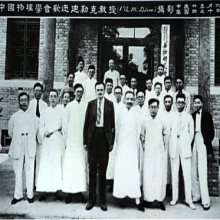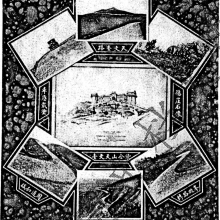As part of the Max Planck Society Partner Group "Transmission and Interactions in Chinese Modern Physics," my project, "From Quantum Entanglement to Quantum Information: The Development of Quantum Entanglement," attempts to identify and analyze changing scientific concepts through a review of the internal history of China, and the external history of relations between Chinese and Western institutions. I focus upon the development of the concept of quantum entanglement, and how it has been applied to quantum information science, which emerged in 1990s.

Participants at the Fifth Rochester Conference on Coherence & Quantum Optics. Source: Coherence and Quantum optics V: Proceedings of the Fifth Rochester Conference on Coherence and Quantum Optics held at the University of Rochester, June 13-15, 1983. New York: Plenum Press, 1984.
Early research on quantum entanglement is related to the foundations of quantum theory. After John Bell found there to be an inequation to test the correctness of quantum-mechanical statistic prediction, a series of experiments were performed to realize it. Experimental investigations of entangled states and EPR experiments in the 1970s and 1980s enabled the application of quantum entanglement in quantum information science. In the 1980s, Chinese scientists also discovered the possibility of applying quantum entanglement in relation to quantum information. Several pioneers have also contributed to the foundation of quantum information science in China, serving as a further research area within this project.




